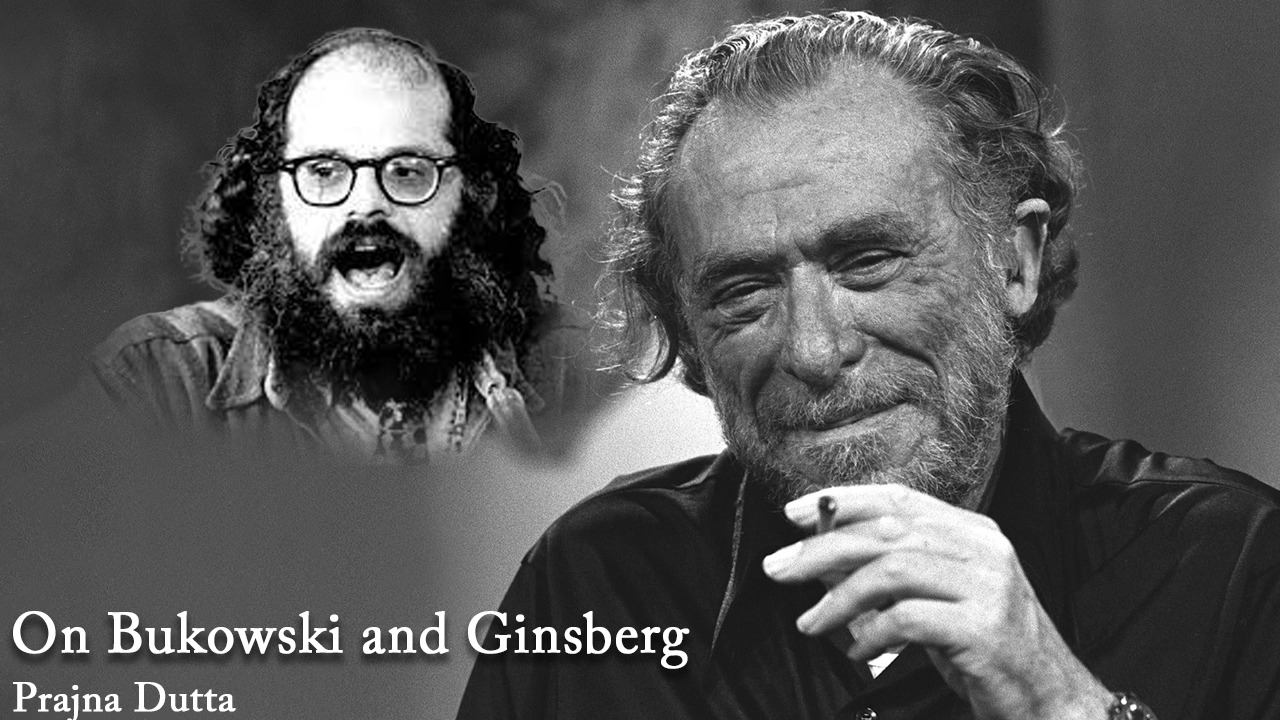Charles Bukowski and Allen Ginsberg are two iconic American poets known for their distinctive styles and their contributions to the Beat Generation and counterculture movement. While they share certain thematic concerns, their approaches to poetry differ significantly. In this comparative analysis, we will explore the similarities and differences in the works of Bukowski and Ginsberg, focusing on their themes, writing styles, and the impact of their poetry.
Themes:
Both Bukowski and Ginsberg delve into themes of alienation, societal critique, and the human condition. However, their perspectives and expressions of these themes differ. Bukowski's poetry often reflects a gritty realism, exploring the dark underbelly of urban life, poverty, and the struggles of the working class. His poems are deeply personal, depicting his own experiences with alcoholism, relationships, and the mundanity of everyday life.
On the other hand, Ginsberg's poetry is more politically charged and explores a broader range of themes. He addresses issues such as the corruption of government, war, sexuality, and spiritual enlightenment. Ginsberg's poems often have a prophetic and visionary quality, calling for societal change and advocating for individual freedom. His work is characterized by a sense of urgency and a desire to challenge authority.
Writing Styles:
Bukowski's writing style is known for its simplicity and rawness. His poems are often written in free verse, without strict adherence to traditional poetic structures. Bukowski's language is straightforward and unadorned, often employing a colloquial and direct tone. His use of vivid imagery and vivid descriptions brings his characters and settings to life. Bukowski's poems often have a confessional quality, as if he is sharing his experiences and emotions directly with the reader.
Ginsberg, on the other hand, employs a more experimental and lyrical style. His poems exhibit a musical quality, with rhythmic patterns and repetition. Ginsberg's use of long lines and extensive cataloging creates a sense of immersion and intensity. His poetry is characterized by an abundance of allusions, symbolism, and wordplay. Ginsberg's writing is often highly emotional and passionate, reflecting his belief in the power of poetic language to effect social change.
Impact:
Both Bukowski and Ginsberg have had a profound impact on American poetry and the countercultural movements of their time. Bukowski's poems resonated with many readers due to their unflinching honesty and portrayal of the struggles of everyday life. His work continues to inspire writers who seek to explore the darker and more marginalized aspects of society.
Ginsberg's impact, however, extends beyond the realm of poetry. His poem "Howl" became a cultural touchstone and a rallying cry for the Beat Generation. It challenged societal norms and censorship, paving the way for greater freedom of expression. Ginsberg's activism and his involvement in political and social movements further solidified his status as a cultural icon.
In conclusion, while Bukowski and Ginsberg share certain thematic concerns, their poetry differs in terms of style, tone, and impact. Bukowski's work focuses on personal experiences and the struggles of the working class, employing a direct and unadorned language. On the other hand, Ginsberg's poetry is more politically charged, experimental, and visionary, calling for societal change. Both poets have left lasting legacies, influencing subsequent generations of writers and poets.

Comments